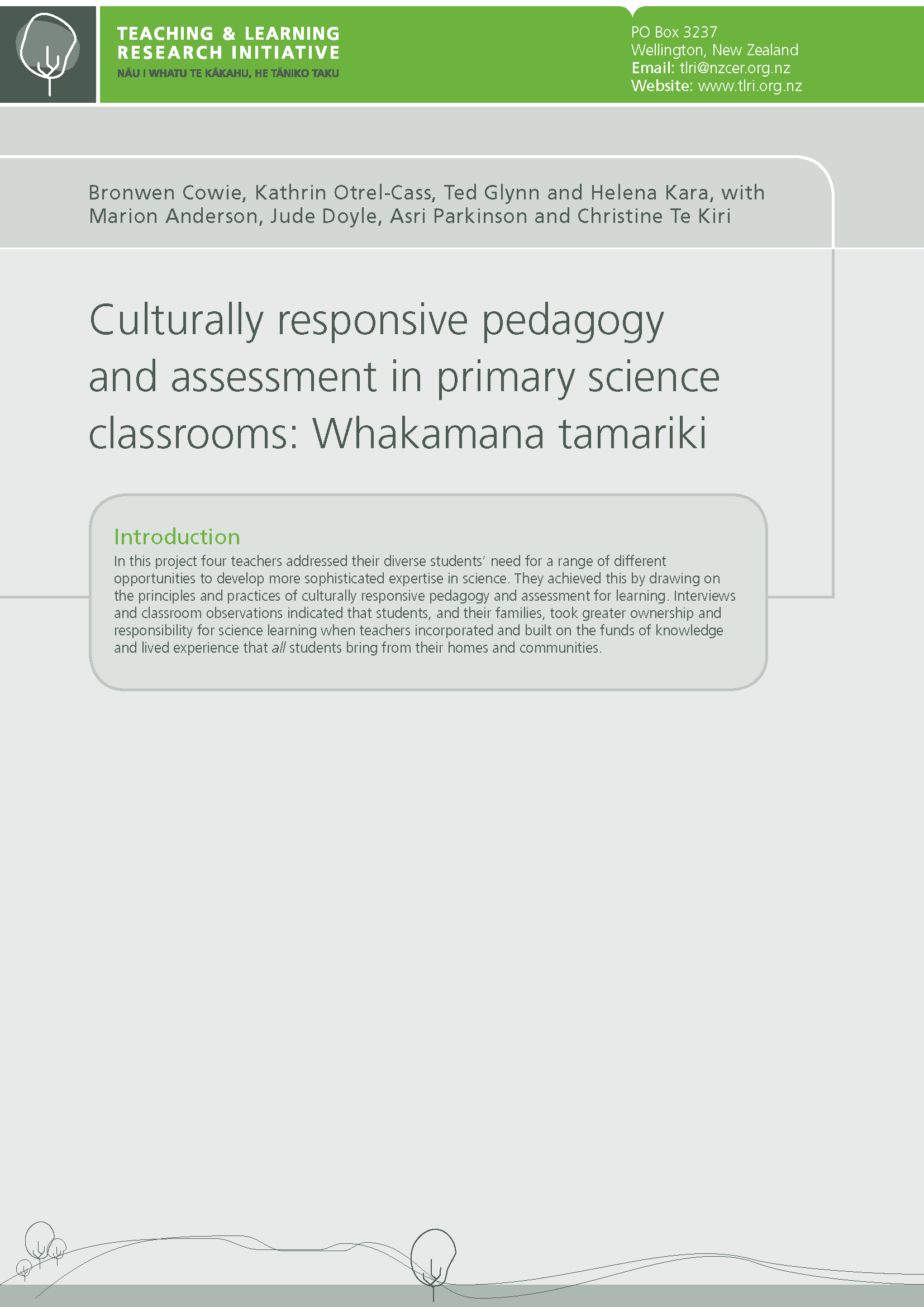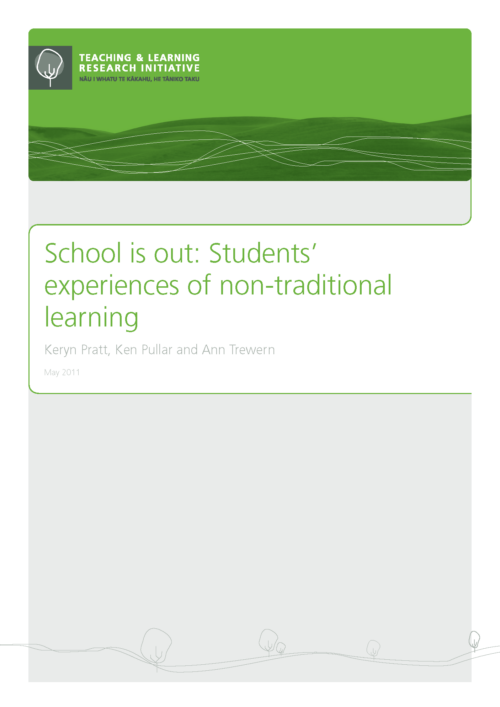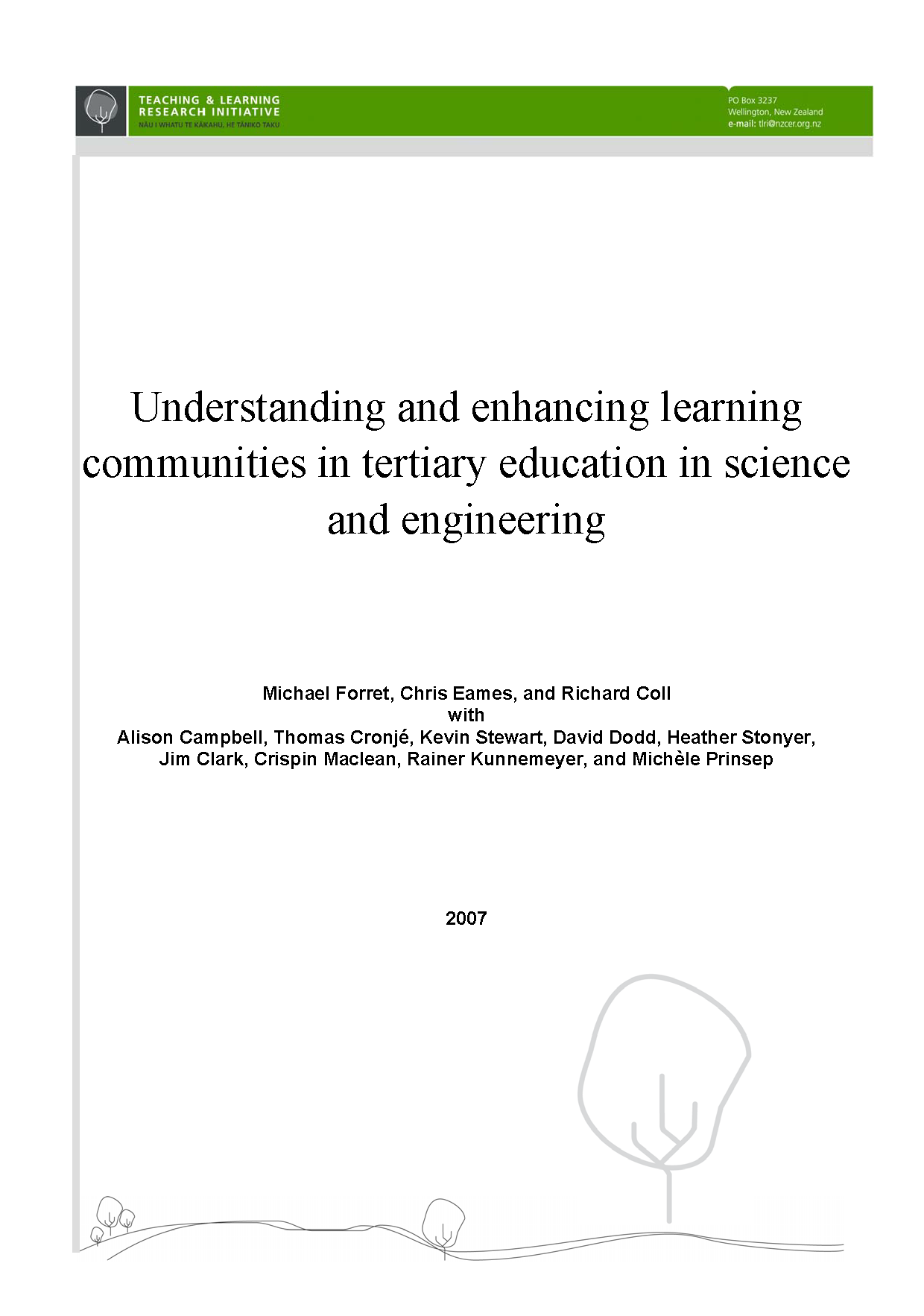
Culturally responsive pedagogy and assessment in primary science classrooms: Whakamana tamariki
Introduction In this project four teachers addressed their diverse students’ need for a range of different opportunities to develop more sophisticated expertise in science. They achieved this by drawing on the principles and practices of culturally responsive pedagogy and assessment for learning. Interviews and classroom observations indicated that students, and their families, took greater ownership and responsibility for science learning when teachers incorporated and built on the funds of knowledge and lived experience that all students bring from their homes and communities. Key findings Teachers can create culturally responsive pathways for science learning by incorporating children’s and communities’ funds of knowledge into the curriculum. Culturally responsive science teachers at times position



